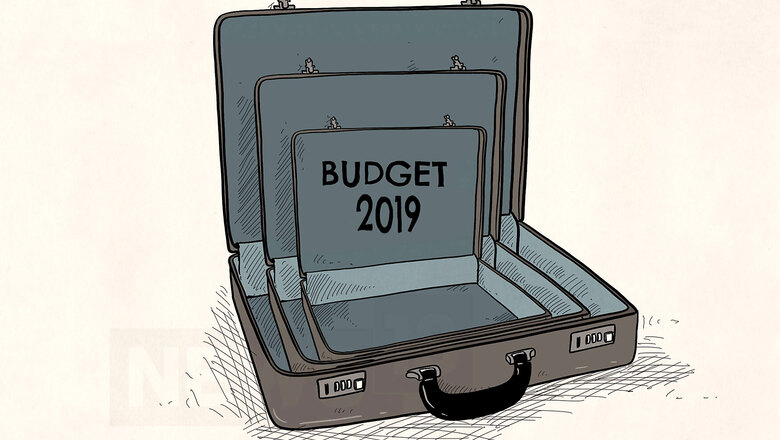
views
The travel and tourism industry expects a reduction of tax burden, improvement of infrastructure and better connectivity from the upcoming Budget 2019, that will help double both the international as well as domestic tourist traffic.
Despite the limitless potential to attract foreign tourists with its unique blend of history, mythology, and geographical, culinary and cultural diversity, India’s share of global tourist spends stands at a lowly 1.8 per cent, according to the previous Economic Survey. If you consider the traffic statistics, then its share is lower at 1.1 per cent.
The problems are aplenty, starting from infrastructure both in terms of access to tourist places and facilities in places of interest. There is also the question of social issues such as safety and conservative cultural attitudes.
The responsibility to boost tourism is with both the central and state governments, and the stakeholders will watch keenly what the Union Budget will do to give the sector a much-needed boost.
That tourism is also essential for India’s service economy as it directly ties in with aviation, hotels and tourism operator industries, all sizeable employment creators, is further incentive for the government to pay more attention to it.
In a letter addressed to the Centre, travel company Cox & Kings Group CEO Peter Kerkar urged the government to speed up tourism projects in destinations that have the carrying capacity to absorb tourists in large numbers.
"Last mile connectivity from major metros to tourism destinations will act as a catalyst to double our tourism numbers and contribute to overall development," he said.
Another area that the government should focus on is to increase the air seat capacity as this is one big challenge that the tourism sector is facing when it comes to attracting more overseas visitors, he said.
On the domestic front, the UDAN scheme should be extended to more airports and help the private sector in making it viable, he added.
Hotel and Restaurant Association of Western India (HRAWI) president and Federation of Hotel and Restaurant Associations Of India (FHRAI) vice president Gurbaxish Singh Kohli said the government should grant soft loans to hotels with a minimum project cost of Rs 25 crore against the present Rs 250 crore.
"We also request the government to consider including two options in GST for restaurants. This would include offering a composite GST with a flat 5 percent rate under which restaurants will not avail Input Tax Credit (ITC) and the other option being 12 percent rate with ITC. The choice of opting into either of the options should be with the establishment," he added.
Further, he said, GST on property rent should be abolished as this makes it totally unviable for establishments to sustain the high costs.
Hotels, he said, are presently are required to levy either 0 or 12 or 18 or 28 percent GST rates based on the declared room tariffs.
"We recommend that the rate categorisation be on the basis of transaction value instead and also that a uniform rate of 12 percent be levied," Kohli added.
FCM Travel Solutions, Indian Subsidiary of Flight Centre Travel Group, Managing Director Rakshit Desai said the Union Budget 2019-20 is expected to be promising for the travel industry, complemented by further tax rebate for the middle-income group.
"A review of GST is needed as a tax on hotels varies according to room tariffs (18 percent to 28 percent). Tax on premium hotels in India is among the highest in the world, more than hotels in New York, London or Paris," he added.
Ixigo CEO and co-founder Aloke Bajpai said with around 70 percent of our traffic is currently being driven by tier II and III cities, reflects the surge in demand from smaller cities for domestic travel.
EaseMyTrip co-founder and CEO Nishant Pitti said the travel and tourism industry in India account for more than 9 percent of the GDP and creates great opportunities for employment and foreign exchange.
"I believe that the government will definitely focus on this sector in the Union Budget of 2019. There should be fund allotment for the infrastructural developments, be it the airports and railway stations, tourist places or other facilities. There must be no delay in refund of GST since the postponement in the refund blocks the working capital and creates stress for the industry," he said.
There should also be a continuation of tax immunity for start-ups and small enterprises, he added.

















Comments
0 comment